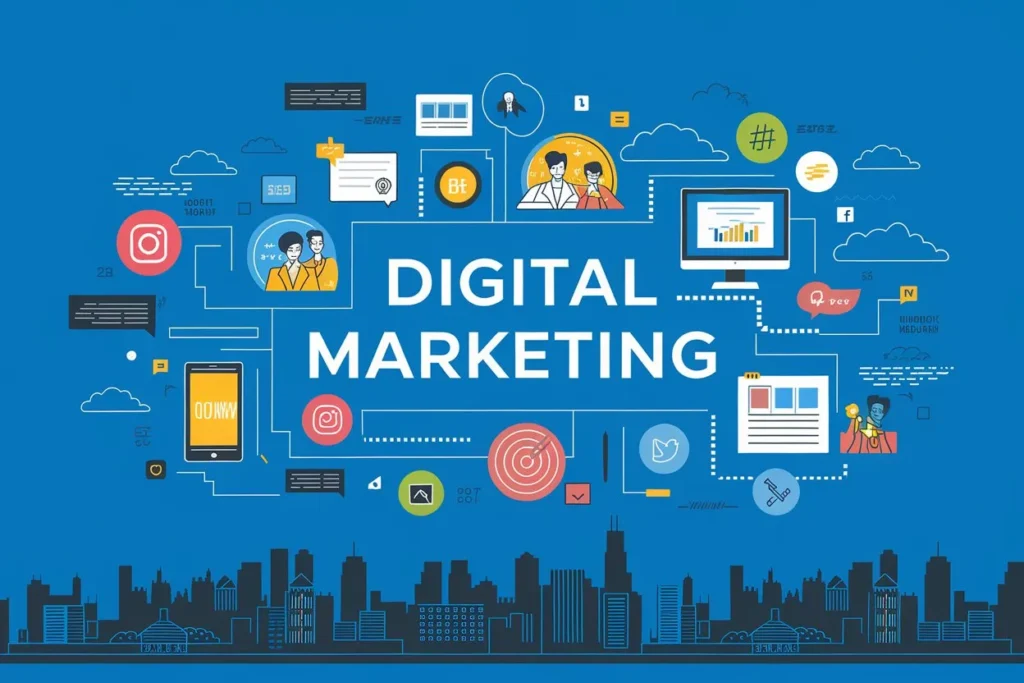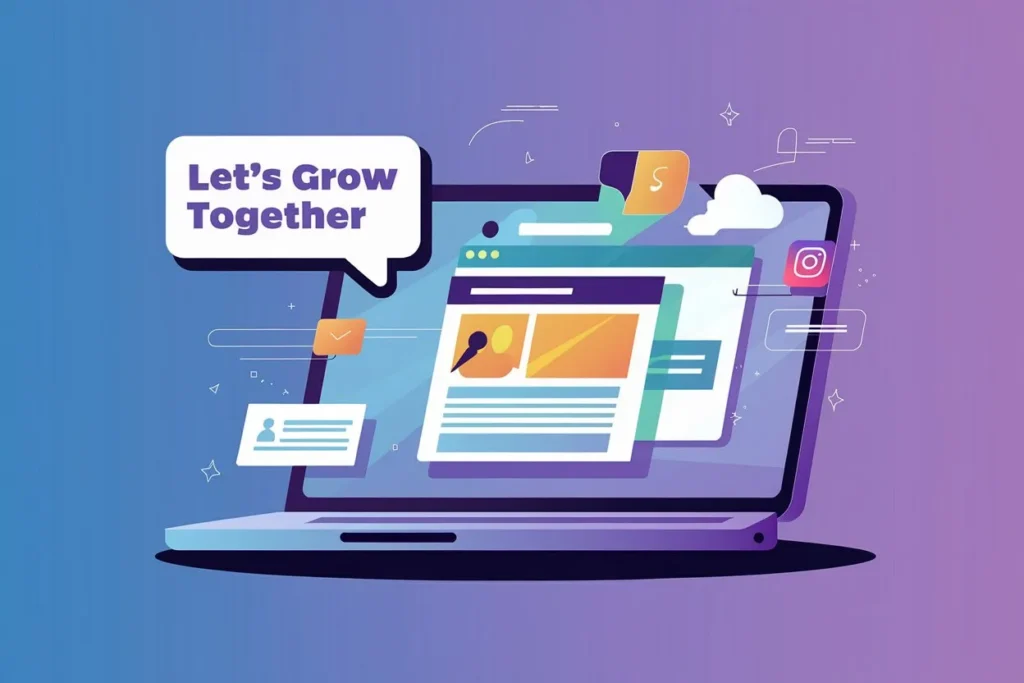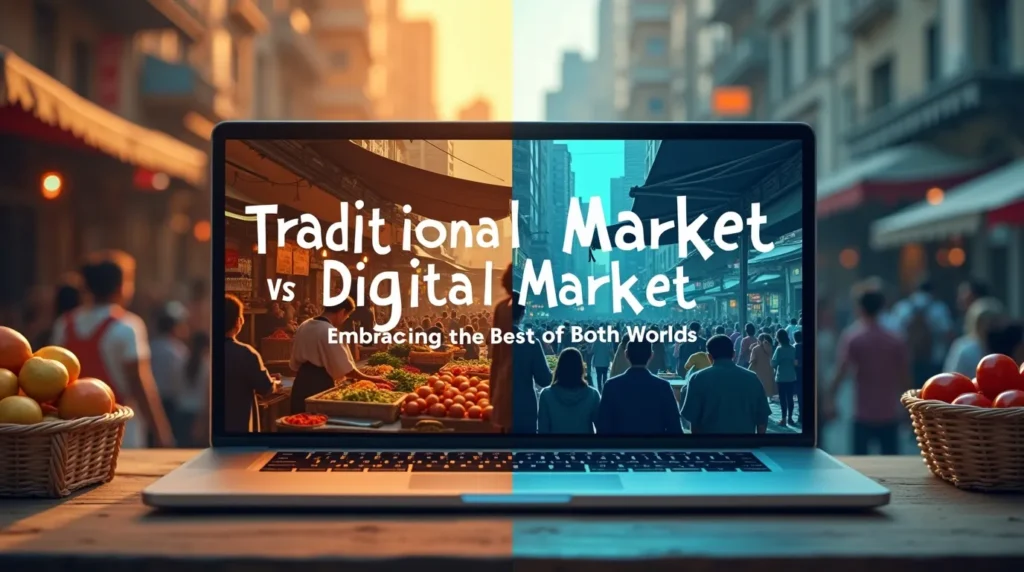Introduction : The Advantage of Digital Marketing in Modern Business
The advantage of digital marketing is that it can reach individuals anywhere globally at lower prices compared to the conventional means. It provides companies with the opportunity to reach a specific segment of customers through social media, search engines, and emails.
One key advantage is its quantitative character, which allows organizations to assess success, examine client behavior, and refine strategies for better results. Furthermore, digital marketing promotes direct engagement, which fosters trust and long-term ties. This article investigates why digital marketing is essential for modern corporate success.
Why are online businesses successful? Why are firms switching to online operations? Let us examine the Advantages of digital advertising and how it is altering business today.
What is Digital Marketing

Any internet marketing campaign is referred to as digital marketing. Search engine optimization (SEO), social media marketing (SMM), and other platforms and strategies are all part of it.
(SEO), email marketing, Google Ads, and content marketing. These tactics are employed by businesses to draw in new clients, interact with their audience, and turn leads into sales.
This is how digital marketing works:
- Sites and blogs
- Yahoo!, Bing, Google, and other search engines
- platforms for social media (TikTok, Facebook, Instagram, LinkedIn, and Twitter)
- Email marketing
- Paid advertising
Now, let’s look at some of the primary benefits of digital marketing.
Advantages of Digital Marketing

The advantages of digital marketing have changed how companies interact with their clients. Online marketing strategies allow firms to reach an international audience at less expense and generate measurable outcomes over traditional marketing methods.
Targeted accuracy is the biggest advantage of digital marketing. Companies use data to easily target the right audience. Real-time analysis also helps with performance measurement, plan optimization, and ROI.
Interaction with clients provides one of the greatest effective advantages of digital marketing. Companies can access social networks, e-mail, and other forms of marketing for interacting with customers. Because of these advantages, digital marketing has become important for company growth.
1. Global Reach
One of the greatest advantages of online marketing is that companies can reach a global customer base. Traditional marketing is geographically constrained, but online marketing campaigns can be accessed from any part of the globe. An Indian business with a small size can market its products to people in the USA, Europe, or Australia if it adopts the correct strategy.
2. Cost-Effectiveness
Startups are concerned about marketing expenses. Online marketing is less expensive than offline. Facebook ads and emails are less expensive than television and flyers. Startups can begin small, track results, and grow as they develop.
3. Targeted Audience
Traditional marketing is a broader and more widespread technique whose sole goal is to reach and attract as many people’s attention as possible. Conversely, digital marketing offers a specialized strategy that enables companies to connect with a certain demographic. Businesses may now choose their target market extremely precisely based on characteristics such as age, interests and hobbies, location, and internet activity. Effective solutions like Facebook Ads and Google Ads are among the many features that enable businesses to target highly targeted customers who are probably going to make a purchase.
For example:
- A fashion firm can target ladies interested in fashion trends who are between the ages of 18 and 35.
- People looking for equipment for at-home workouts can be reached by a fitness brand.
4. Measurable Results
One of traditional marketing’s most significant disadvantages is that success is difficult to assess. Digital marketing, however, offers real-time statistics that make campaign performance easily monitored. Google Analytics, Facebook Insights, and SEMrush are some of the tools that businesses use to measure success.
- Website traffic
- Engagement levels (likes, shares, comments)
- Conversion rates
- Customer demographics
- ROI (Return on Investment)
This data-driven approach enables firms to optimize marketing efforts and enhance performance over time.
5. Higher Engagement and Conversion Rates
You can chat with certain customers through DMs, social media, and live chat when you’re advertising online. Instead of the old-school one-way advertising, we now have two-way convos thanks to the internet. Businesses can interact with their customers by posting comments, answering questions, or sending surveys.
The more you converse, the higher the sales. If customers are attached to a brand, they’re much more likely to purchase from it and utilize what it provides.
6. Flexibility and Adaptability
It is simple to make changes in digital marketing strategies depending on the level of performance. Firms can move to a different platform immediately, modify the target audience, or change the message of the ad if an ad campaign is not doing well. This is a significant benefit compared to offline advertising, as you cannot modify an ad once you have broadcasted or published it.
7. Brand Awareness and Reputation Building
A strong online presence can help businesses boost their reputation and brand recognition. Before making an online purchase, consumers study goods and services. If a company has active social media profiles, positive reviews, and high-quality material, it gains credibility and dependability.
8. Better ROI (Return on Investment)
Because digital marketing is cost-saving and result-oriented, companies are most likely to attain a better ROI than in the case of traditional marketing. Through SEO, PPC, or social marketing, digital marketing enables companies to invest wisely and monitor returns effectively.
How Digital Marketing Benefits Small and Large Businesses
For Small Businesses:
- ROI-boosting, cost-effective advertising
- competes on digital platforms with bigger businesses.
- uses SEO to improve local presence
For Large Businesses:
- Expands brand reach globally
- Targets specific customer segments effectively
- Provides in-depth customer insights and analytics
Different Types of Digital Marketing
SEO (Search Engine Optimization)
search engine optimization helps businesses position high on internet search engines like Google, resulting in organic traffic to their websites. More trust and visibility follow with higher rankings.
PPC (Pay-Per-Click Advertising)
Pay-per-click, or PPC for short, offers a great avenue for businesses to place their sponsored links strategically on numerous social networking sites as well as on most used search engines. Pay-per-click advertising leads businesses to pay only after an individual actually clicks on their ad, something that not only adds to the value for money associated with this action but also renders it a speedy and very efficient way of bringing traffic to their websites.
Social Media Marketing
Use popular social networking sites such as Facebook, Instagram, and LinkedIn to generate leads, build a brand, and for client interaction.
Content Marketing
It enables companies to teach consumers and establish themselves as thought leaders through blogs, online videos, and infographics.
Email Marketing
By putting companies in their customers’ minds, sending marketing newsletters to actual and potential customers creates sales.
Comparison: Digital Marketing vs Traditional Marketing

| Feature | Digital Marketing | Traditional Advertising |
|---|---|---|
| Cost | Less expensive | Expensive |
| Audience Reach | Global outreach and impact | Limited to certain places. |
| Interaction | Two-way interaction | One-way communication |
| Targeting Options | Extremely focused | Generalized targeting |
| Measurable Outcomes | Ye (tools for analytics) | difficult to measure correctly. |
| Flexibility | High | Low |
Future Trends in Digital Marketing
Digital marketing evolves continuously. These are some of the trends that will shape the future.
- AI and Automation: The digital marketing process is being transformed by the use of chatbots, AI marketing, and predictive analytics.
- Voice Search Optimization: Companies must optimize for voice search with smart assistants such as Alexa and Siri. Digital marketing is constantly evolving. What is written below will shape future research.
- Video ads: Short video advertisements are gaining popularity on platforms such as Instagram Reels and TikTok.
- Influencer marketing: Working with social media influencers is becoming more popular. Customers will be able to interact more thanks to augmented reality (AR) and virtual reality (VR).
Conclusion: Digital Marketing is the Key to Business Growth
Digital marketing has revolutionized how companies connect and communicate with their clientele. Digital marketing is an essential tactic for every company trying to expand because of its worldwide reach, affordable solutions, focused audience involvement, and quantifiable outcomes.
Businesses that use digital marketing will stay ahead of the competition and prosper in the contemporary marketplace as technology develops.
Are you prepared to use digital marketing to further your company’s goals? Get started now to open up countless doors to success!